“I was writing the first draft of No Going Back during Covid and it struck me that 700 years later, we were in the same situation as they were with the Black Death. The world’s population was being wiped out by something we didn’t understand and couldn’t cure, just as theirs was.”
– Susan Frances
Multi-award-winning historical fiction author Susan Frances draws profound connections between past and present through her writing. Born in Surrey, England, she has been crafting stories since she was a child. Her early literary attempts, including a full-length book titled Amber written at the age of ten, reveal a lifelong passion for storytelling. Influenced by her favorite childhood book, Black Beauty, Frances sent her manuscript to a publisher, receiving her first, albeit kind, rejection letter.
Frances’s fascination with her family’s Devon roots, sparked by her grandfather’s tales, eventually led her to research her ancestry and inspired her to write No One Must Know, the first book in The Chiddleigh Saga, and recipient of multiple awards including the BREW Seal of Excellence, September 2022 BREW Readers’ Choice Award Book of the Month, and BREW Book Excellence Award 2023 Historical Fiction. The second book in the series, No Going Back, is the April 2024 BREW Readers’ Choice Award Book of the Month.
Now residing in Devon, she finds inspiration in her surroundings, often accompanied by her husband and their dog, Monty, during her walks.
In this exclusive interview, we look into Susan Frances’s journey as an author and explore how her love for history and her personal experiences have shaped her compelling narratives. Through her work, she brings to life the human spirit across centuries and illustrates how the echoes of the past resonate in our present lives.
Read further to know more.
TWB: Congratulations on winning the April 2024 BREW Readers’ Choice Award Book of the Month for No Going Back. What does this recognition mean to you?
SF: I write because I enjoy it. Achieving the BREW Readers’ Choice Award is a huge confidence boost knowing that people like my books.
The recognition from Brew readers is particularly heart-warming, because living in the UK, I find it hard to believe that people in Australia and across the globe are reading and enjoying my work. Such is the age of technology!
TWB: No Going Back goes deeply into the experiences of Thomas and other characters during the Black Death. What inspired you to set your story in this tumultuous period?
SF: I remember a history lesson at school about the Black Death. Like most children, I was fascinated by the gruesome tales of bodies piled up by the roadside, the toll of the death bell and the horror of the situation. To think, over one-third of the population was wiped out in such a short time and didn’t recover for another two hundred years.
The Black Death was a pivotal point in English history and it would be remiss to write about the 1300s and not include it.
Book 1, No One Must Know, ends in August 1348 just weeks before the Black Death would sweep the land. Of course, my characters didn’t know this would happen and I wondered how they would cope. It seemed logical, therefore, to begin Book 2, No Going Back, as the Black Death reached Devon. It would also make a dramatic backdrop to my story.
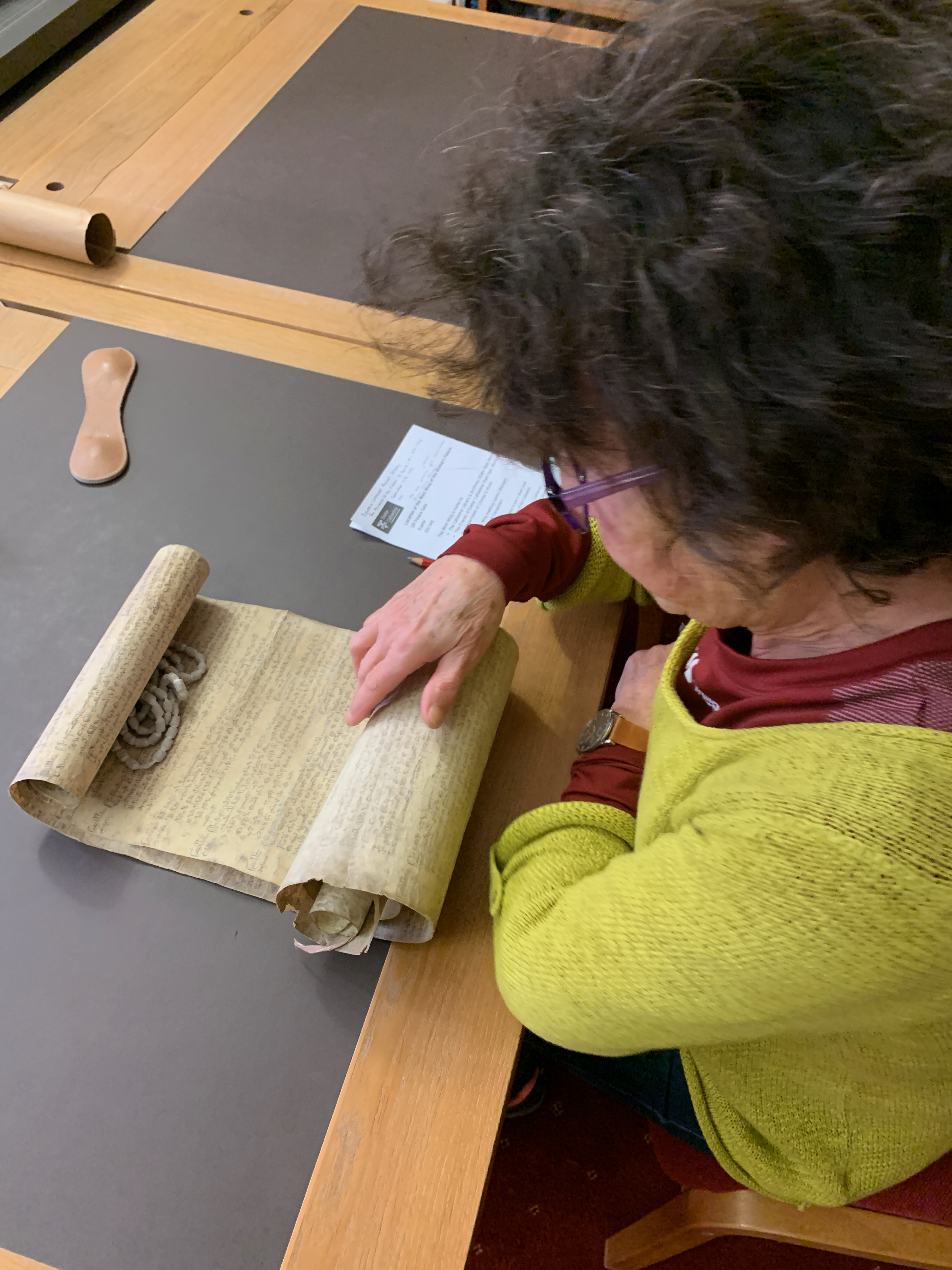
TWB: The characters in your book are incredibly complex and relatable. Can you tell us more about your process for developing such multifaceted characters?
SF: That’s a tricky one! At the start of a new book, I decide on the outlines of my characters before I begin to write; from physical appearance, mannerisms and speech patterns which enhance their personality. I look at how various characters, particularly the antagonist and protagonist, will play off against each other, as this will affect the type of person they need to be. In the case of Thomas, in No Going Back, this was particularly difficult because he was his own protagonist, struggling between who he was and the person he was expected to be.
There is a lot of early thinking, most of which I do when I am walking my dog, a golden retriever called Monty. I then make and re-make copious notes in longhand before switching to a pc and starting Chapter 1. I use two pc screens. I draw up a spreadsheet of character traits, which is open on my second screen, so I don’t forget details. For example, in No Going Back, William has only one arm and I often forgot which one!
To be interesting and plausible, I like my characters to develop throughout a book. They are affected by events, they laugh, they cry, they change and learn or not from their mistakes, just as everyone does. When I am writing I often ask myself, what would this character do in the situation? I try to give an all-round view of the personality for the reader to become immersed in.
TWB: Thomas’s journey from a naive student to a self-assured lord is central to the novel. What message do you hope readers take away from his transformation?
SF: The obvious answer is that nothing is impossible if you apply yourself. But it’s deeper than that.
The people in medieval England had the same fears, dreams and hopes as us. The difference is that most of us have a choice about our lives, they did not. Sons were expected to follow in their father’s footsteps, be it the next lord, as in Thomas’s case, or to take over the smithy, like William. Noble daughters were assets to be bartered as wives in exchange for land, money or title; preferably all three. Peasant girls would marry within a similar class, for example, in No Going Back, Rose is a miller’s maid and was promised to William, the Blacksmith’s son. Neither of them had any say in the matter.
All of these characters were ill-suited to their destiny and none of them wanted their assumed roles. As William said, ‘What use is a smithy with one arm? It can’t be done, but Pa thinks it can.’
Essentially, they were all misfits and I thought this was an interesting topic to explore. After many struggles and much soul-searching, Thomas accepts who he is and finds the courage to be himself. William discovers a living he enjoys and can manage with his disability. Rose knows she has more to offer than being William’s obedient wife, and for her, the Black Death gave her a unique opportunity to show what she was capable of.
So, the message is to be who you are, no matter what the odds.
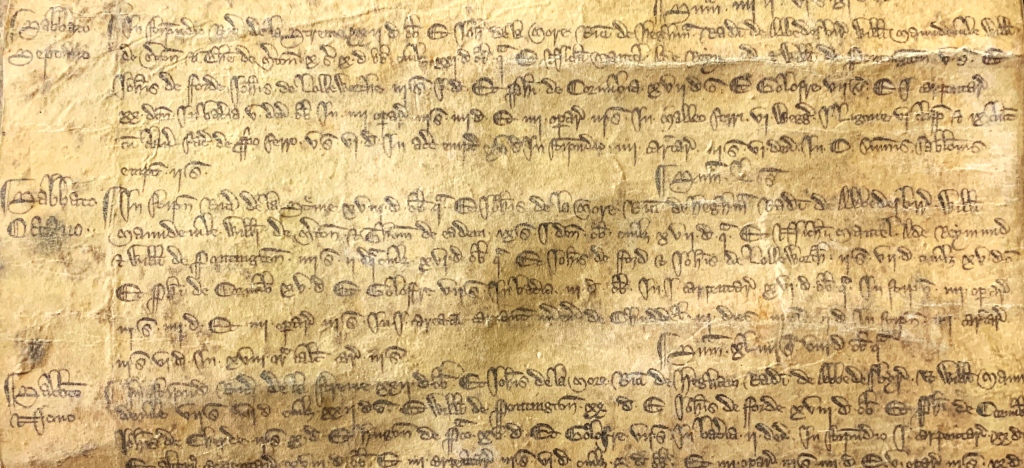
TWB: Your portrayal of historical England includes themes that are rarely explored in the genre, such as physical and intellectual disabilities, and homosexuality. Why did you feel it was important to include these themes?
SF: Part of the reason to include characters with physical and intellectual disabilities was simply because they existed, as they do today. I wanted to show they were perceived at the time and how they found a role within society. I think Eleanor, with her intellectual disability, was fortunate to be Maria’s friend. Many like her would have been outcasts left to beg or caged as specimens to be ridiculed at fairs and markets.
During the last decade, gender issues have been centre-stage in many countries, and I believed it would be interesting to explore this subject.
In fourteenth-century England, homosexuality was considered the greatest sin against God. Thomas feared for his soul and received total condemnation from a priest. Had he been discovered, he would have faced total shame, torture and death. It seemed appropriate to show how attitudes to gender issues were portrayed then and have since changed to a society that is more open and inclusive.
TWB: Many readers have commented on the realistic depiction of medieval life in your book. How do you balance historical accuracy with creating an engaging narrative?
SF: When I read an historical novel, I like to learn about that time and believe other readers do too, but getting a balance between fact and fiction can be difficult. As I say to my editor, I am not writing a history book!
My books are set in the day-to-day life in medieval England and to make them believable and immersive, I include everyday situations, e.g., what did they eat, how did they make candles, how did they build houses with few tools, how did they make ink?
I try to weave these snippets within the story and to enhance a character. Annie, for example, is a healer and I was able to include many situations to show actual medieval cures for ailments.
I research many sources. Accuracy is important and I do my best to get details correct. Although I admit to a little poetic licence! Annie’s famous clover tonic is one.
TWB: The parallels between the Black Death and the recent Covid pandemic are striking. How did contemporary events influence your writing of No Going Back?
SF: I was writing the first draft of No Going Back during Covid and it struck me that 700 years later, we were in the same situation as they were with the Black Death. The world’s population was being wiped out by something we didn’t understand and couldn’t cure, just as theirs was. We isolated, took controlled exercise in a restricted area, were fearful of others and prayed for an end. So did they.
For me, the similarities put mankind into perspective. We think we control the planet but despite our advances; from horse and cart to railways, cars, aeroplanes and the microchip, we are as vulnerable as they were.
The thing that resonated with me most, was our reliance on supermarkets. We take our food for granted, but suddenly the shelves were empty, items were restricted or missing. What would we do if supplies ran out? In medieval times people were more self-sufficient and the main problem my characters faced was starvation.
Without Covid, I doubt if I would have had such an insight into how people coped during the Black Death, and I tried to put my feelings and experiences into the book.

TWB: No Going Back is the second book in The Chiddleigh Saga. How does it connect to the first book, No One Must Know, and what can readers expect from the series moving forward?
SF: No Going Back picks up where Book 1, No One Must Know, ends and follows Thomas against the trials of the Black Plague. I could have continued with Lady Joan and considered that, but I wanted to write a character study and so centred the story around her son, Thomas. Other characters from Book 1 – Rose, Eleaaor, Maria, Annie, Peter, William and Simon – continue their journeys as the story develops.
I am writing the first draft of Book 3 and don’t want to give too much away. Suffice it to say that some of the old favourites characters are still there, albeit much older. We learn how Thomas has succeeded and found happiness – which I felt was important because it demonstrates that you can achieve and realise your potential by being true to yourself.
Time has moved on a little, and the story centres around Rose and Thomas’s son, James. James is seventeen, stronger than his father and has ambitions for the estate. Innocently, he alienates the powerful Earl of Devonshire. Who will triumph over the battle for the Chiddleigh Scarlet Cloth and will James be ruined in the process?
The series will follow the Chiddleigh family through the centuries from the English Civil War to the Victorian era and ending in the 1960s. My family’s history inspired the books, and I am not inclined to write an autobiography!
TWB: Your love for Devon and its history clearly influences your work. How has your personal connection to Devon shaped the stories you tell?
SF: As a child I was fascinated by my grandfather’s tales of his Devon childhood. We spent many summers visiting where my ancestors lived. I always felt a strong connection to Devon, particularly around Dartmoor, and promised myself that one day, I would return to my roots. It took longer than I thought!
My grandfather, known affectionately as Chud, liked fishing and told many a good tale! So, years later I decided to research my family history. After a year or so, I had amassed boxes of notes and piles of documents. But how to present them? I tried drawing a family tree but that is more difficult than you might think!
During this research, I discovered an ancestor who lived in the 1840s. She worked for an apothecary in Exeter and was accused of larceny. She was found guilty and imprisoned for fourteen days. After that, I could find no trace of her.
What happened? Why did she do that? Was she guilty? In those days, a servant’s word held little sway against her master.
I remember sitting back considering various scenarios and thinking I could write a book about that. A light bulb moment and Book 1 was born. I began in the 1300s because that was the earliest record of my family and it is a fascinating period, often overshadowed by the Tudors. Records of so early a time are scant but Sir John and Lady Joan were real, and I have included any facts – for example, my family supplied oak timbers for Exeter Cathedral.
I used actual places and locations in my books but changed the names. When walking with my dog. Monty, I saw the foothills where Will’s cottage might have been and based Book 1 on my local village. The mill is still there, although now a private house. I visited where my family lived and worked three hundred years ago. I stood beneath the old oak tree where, on Sundays, the men gathered to receive their pay. If they didn’t go to church, they didn’t get paid! I walked around the graveyard and found many of my ancestors’ headstones.
On my website (www.susanfrances.co.uk) there are photographs of places featured in my first book.
In No Going Back, Thomas takes his group to a valley for refuge from the Black Death, I based this on one of my favourite places on the edge of Dartmoor, not far from Okehampton.
Having a family connection to Devon has certainly helped to create credible stories.

TWB: What advice would you give to aspiring writers who wish to tackle historical fiction, particularly in creating authentic and compelling narratives?
SF: Be prepared for a lot of work! Historical fiction novels are slow burners. They require research and more research. Don’t forget to keep notes and the sources for future reference.
In some historical contexts, people have different views and perceptions from us. Some of them may not sit comfortably and others are difficult to accept. The writer’s challenge is to keep to the facts of the time whilst being sensitive to today’s thinking.
Finally, enjoy the process. If you enjoy writing it, it will show; hopefully, readers will enjoy it too.
⭐⭐⭐⭐⭐
“For me, the similarities put mankind into perspective. We think we control the planet but despite our advances; from horse and cart to railways, cars, aeroplanes and the microchip, we are as vulnerable as they were.”
– Susan Frances
Useful Links


Links to Reviews
- April 2024 BREW Readers’ Choice Awardee: “No Going Back” by Susan Frances – The Chrysalis BREW Project
- Review of No Going Back – reviewer John Owen – OnlineBookClub.org
- No Going Back: Book 2 of The Chiddleigh Saga by Susan Frances | Goodreads
Amazon links
- No Going Back: Book 2 of The Chiddleigh Saga eBook: Frances, Susan: Amazon.co.uk: Books
- No Going Back: Book 2 of The Chiddleigh Saga: Amazon.co.uk: Frances, Susan: 9798873700967: Books
- No One Must Know: One fateful event, a forbidden friendship and a dark secret will change lives forever (The Chiddleigh Saga Book 1) eBook: Frances, Susan: Amazon.co.uk: Kindle Store
- Know more about the BREW Book, Blog, and Poetry Awards here.
Share Your Insights
We hope you enjoyed our conversation with Susan Frances on the human spirit in historical fiction. We’d love to hear your thoughts!
- What parallels do you see between historical events and our present day?
- How do you think historical fiction can influence our understanding of the past?
- What themes in Susan Frances’s books resonate most with you?
Share your insights in the comments below!
Other Highlights
Looking for something?
Type in your keyword(s) below and click the “Search” button.
Helpful Shortcuts
More Stories
Print and Digital Magazine

About Us
The World’s Best Magazine is a print and online publication that highlights the extraordinary. It is your passport to a universe where brilliance knows no bounds. Celebrating outstanding achievements in various fields and industries, we curate and showcase the exceptional, groundbreaking, and culturally significant. Our premier laurels, The World’s Best Awards, commend excellence through a unique process involving subject matter experts and a worldwide audience vote. Explore with us the pinnacle of human achievement and its intersection with diversity, innovation, creativity, and sustainability.
We recognise and honour the Traditional Owners of the land upon which our main office is situated. We extend our deepest respects to Elders past, present, and emerging. We celebrate the stories, culture, and traditions of Aboriginal and Torres Strait Islander Elders from all communities who also reside and work on this land.
Disclaimer: The World’s Best does not provide any form of professional advice. All views and opinions expressed in each post are the contributor’s own. Whereas we implement editorial policies and aim for content accuracy, the details shared on our platforms are intended for informational purposes only. We recommend evaluating each third-party link or site independently, as we cannot be held responsible for any results from their use. In all cases and with no exceptions, you are expected to conduct your own research and seek professional assistance as necessary prior to making any financial, medical, personal, business, or life-changing decisions arising from any content published on this site. All brands and trademarks mentioned belong to their respective owners. Your continued use of our site means you agree with all of these and our other site policies, terms, and conditions. For more details, please refer to the links below.
About | Advertise | Awards | Blogs | Contact | Disclaimer | Submissions | Subscribe | Privacy | Publications | Terms | Winners
The World’s Best: A Magazine That’s All About What’s Great | theworldsbestmagazine.com | Copyright ⓒ 2022-2026
Let’s connect
Discover more from The World's Best
Subscribe to get the latest posts sent to your email.
































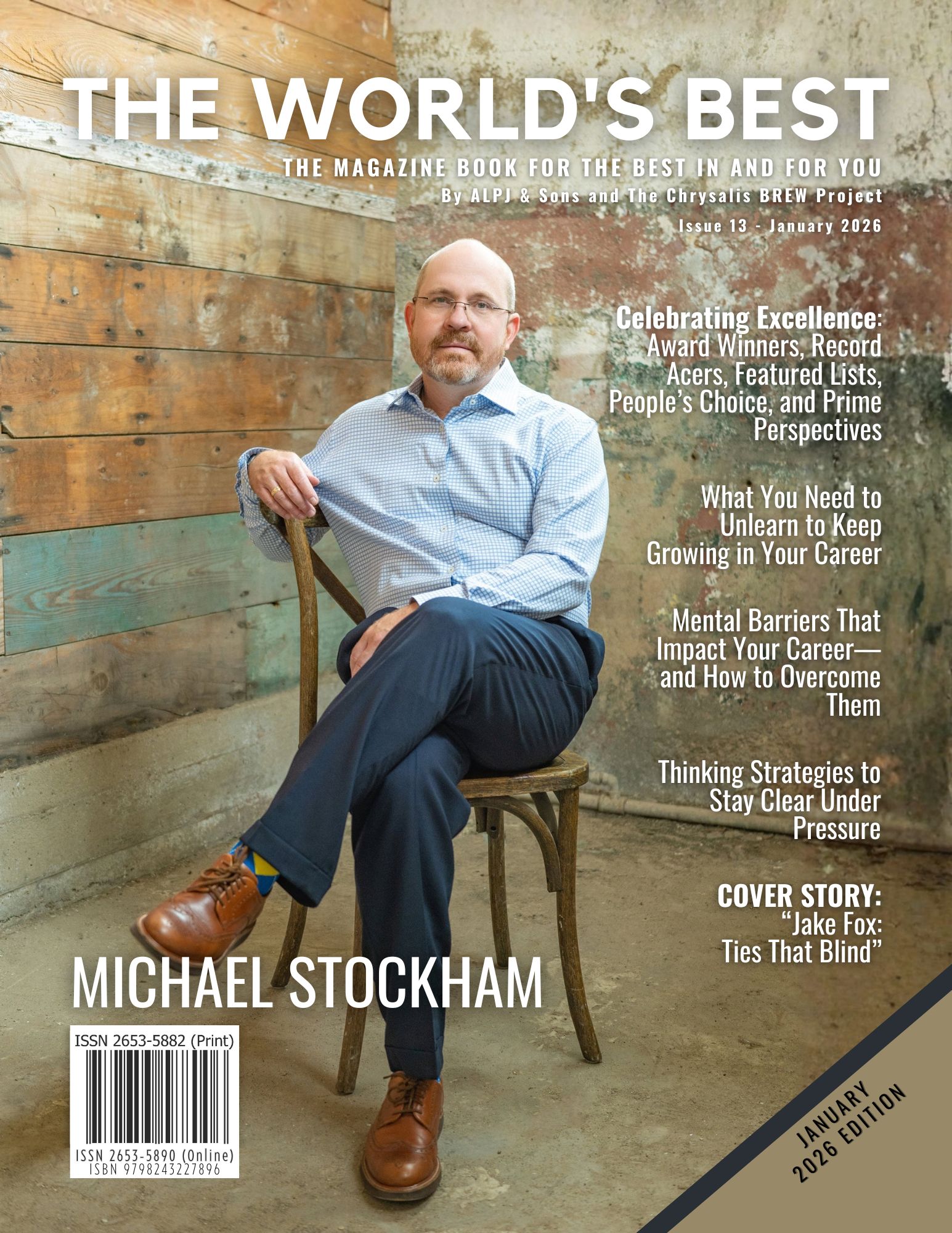


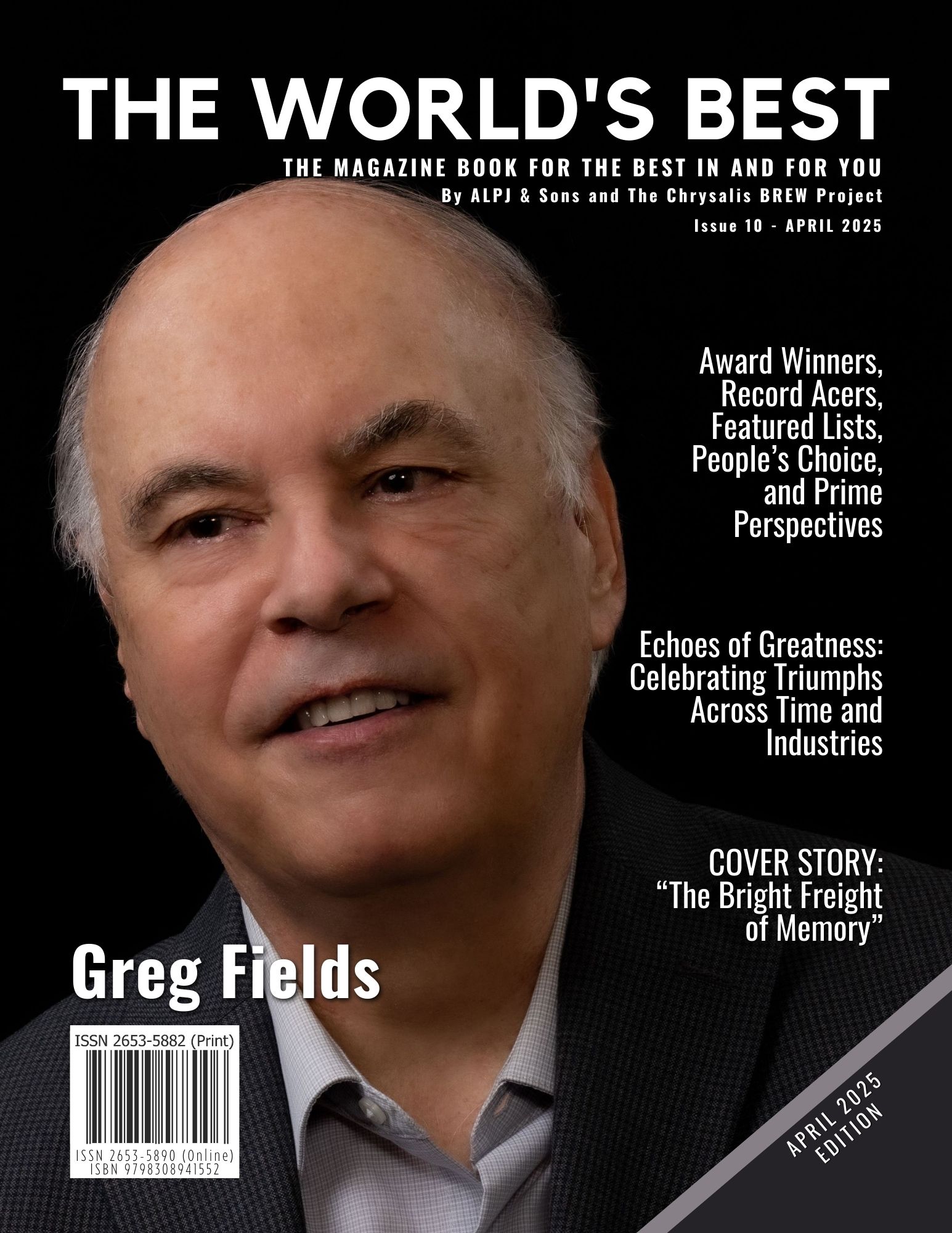
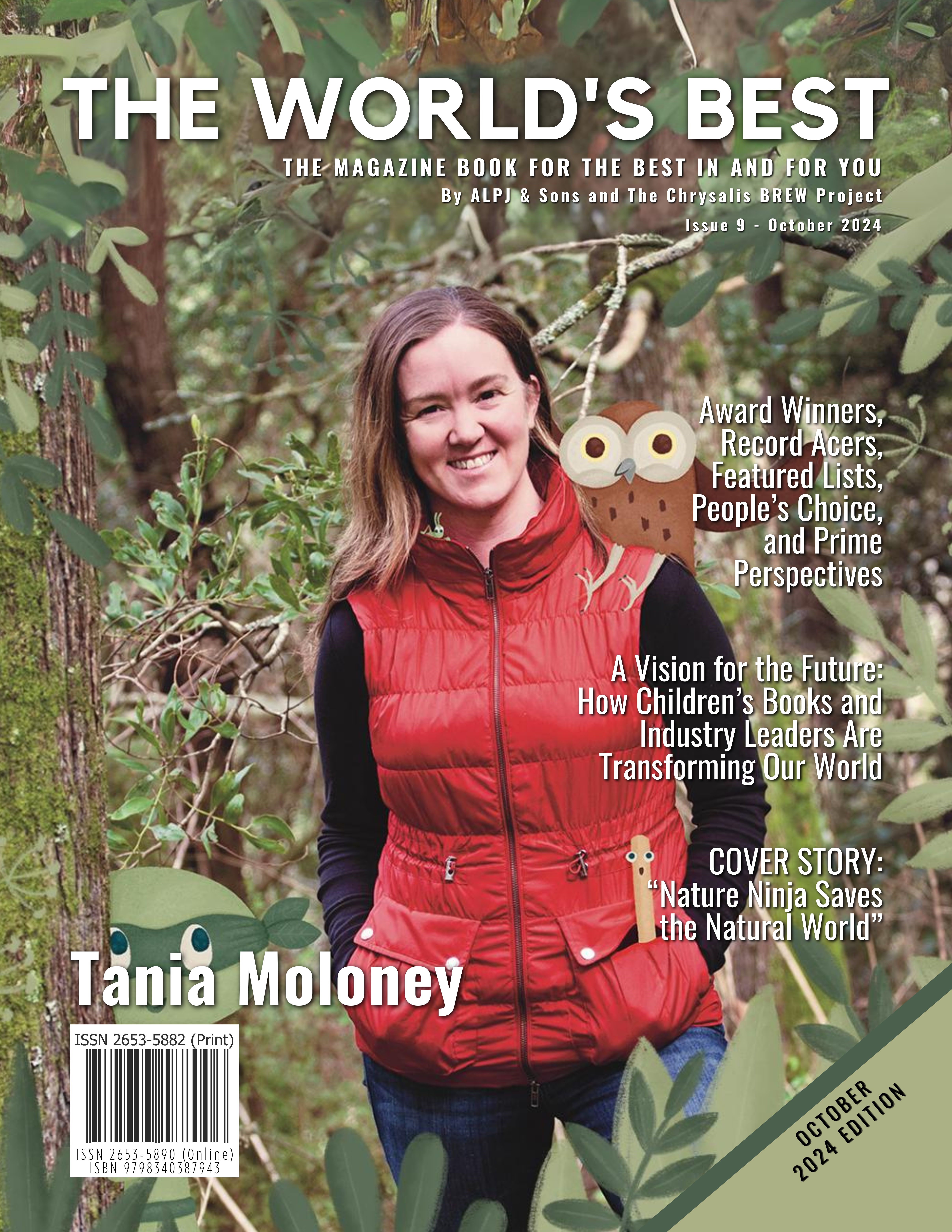
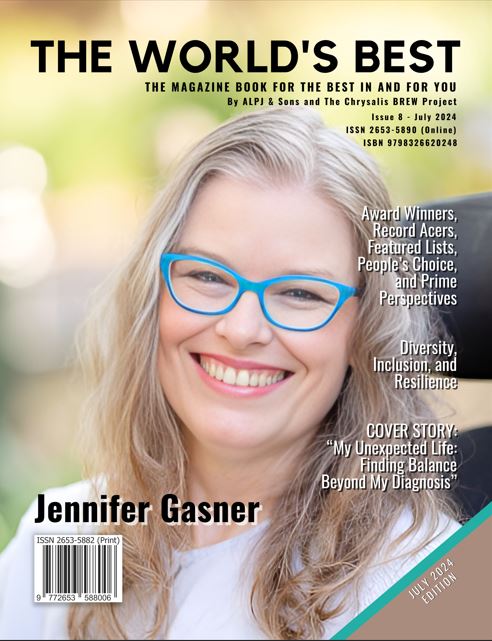
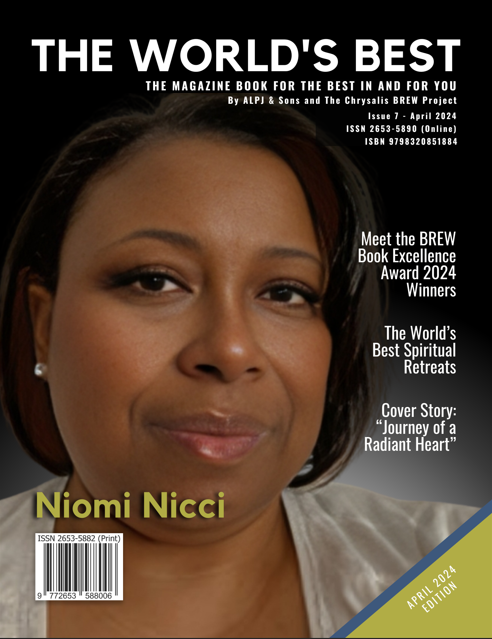
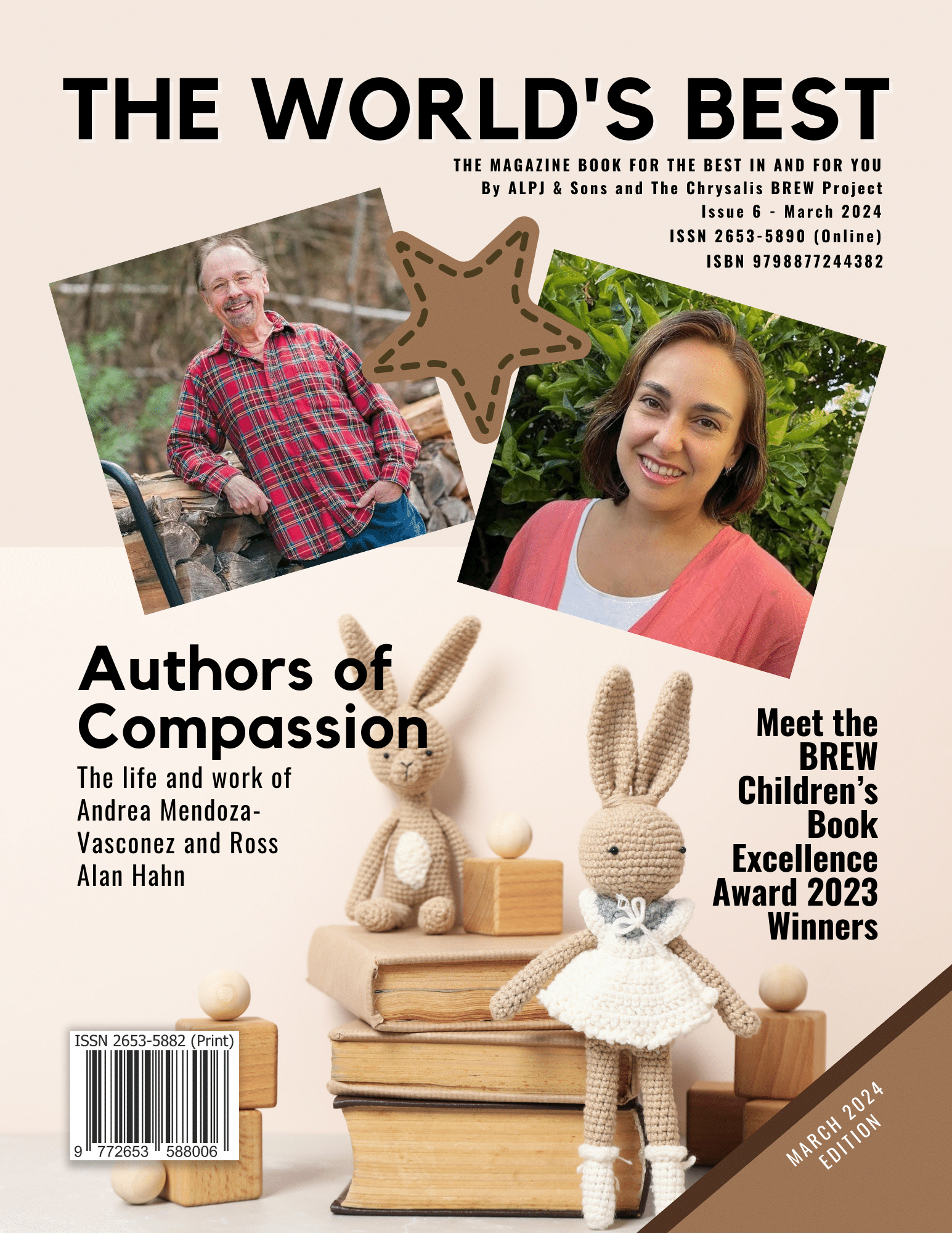




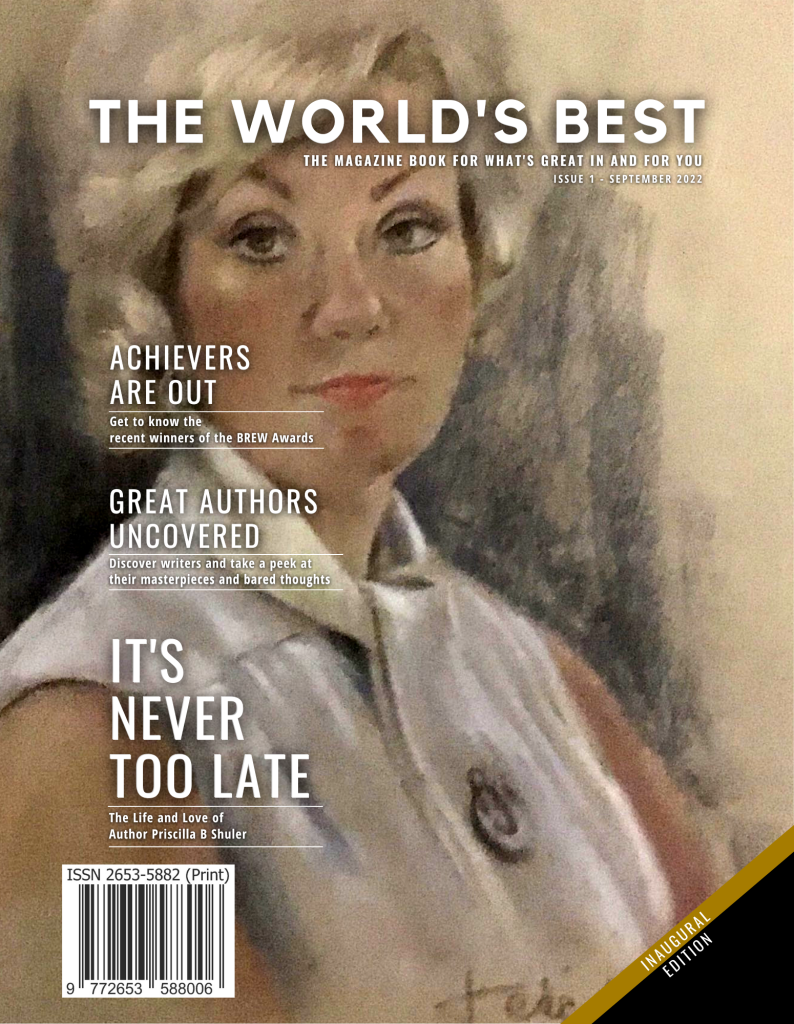

Mrs. Frances’s books completely changed my view of the Middle Ages, and her characters are unforgettable, so it was fascinating to read the “behind the scenes!”
LikeLiked by 1 person
So true, Andrea!
LikeLiked by 1 person
This interview was a fascinating peek into the inner mechanisms of how an author’s mind works. Thank you for sharing.
LikeLiked by 2 people
Thank you so much for your kind words! I’m glad you found the interview fascinating.
LikeLiked by 1 person